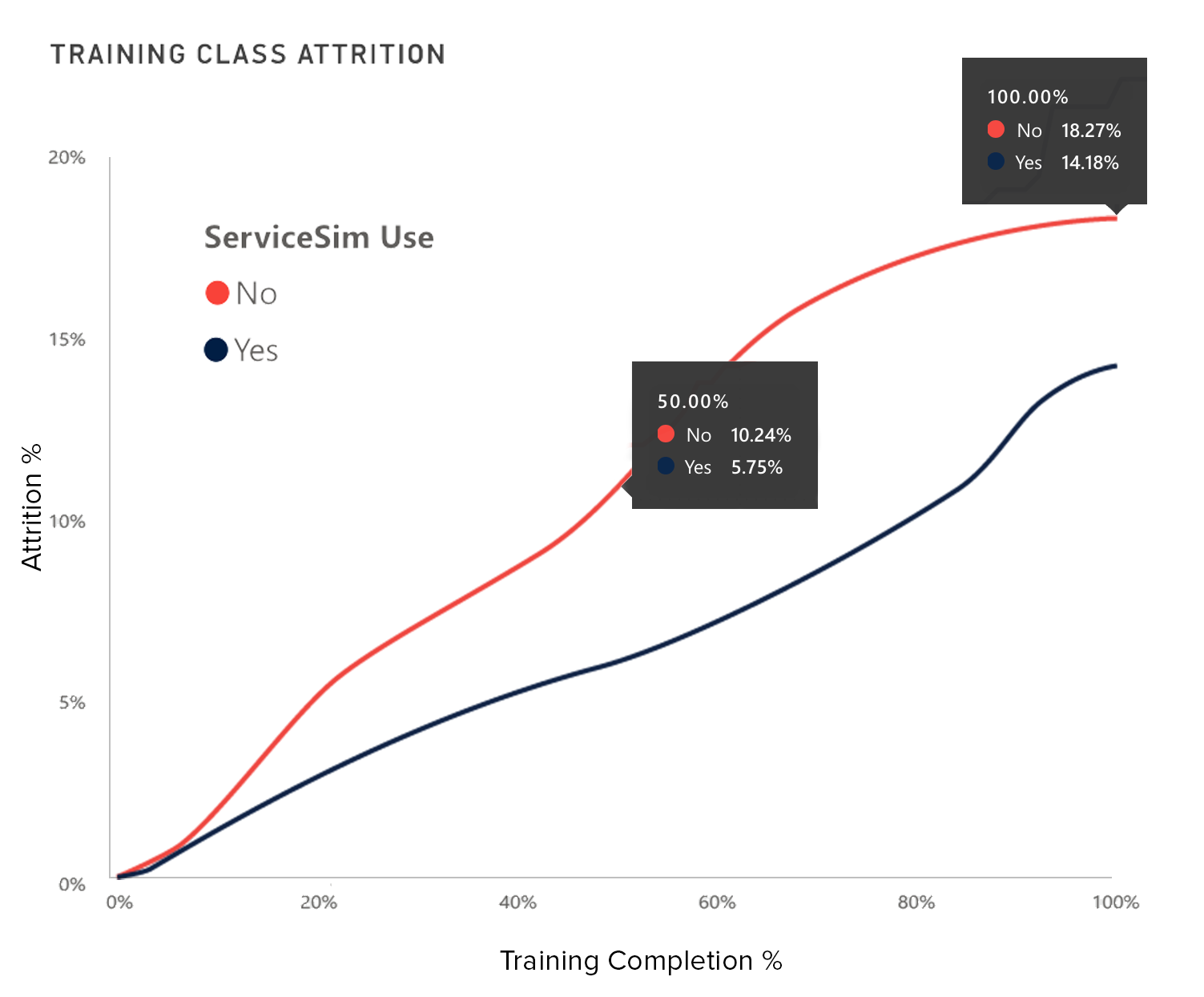Stress among agents isn’t just an inconvenience—it’s a silent performance killer. Studies show that agent stress levels directly impact customer experience (CX) scores, leaving many organizations wondering why their customer satisfaction rates aren’t hitting the mark. According to recent statistics, over 70% of contact center agents report feeling high levels of stress on a daily basis, and this pressure can lead to burnout, increased turnover, and ultimately, lower CX scores. Let’s look at some of the surprising ways stress affects performance and explore how the right training methods can make a difference.
How High-Stress Training Impacts Performance
Training is often seen as a solution to improve agent performance, but when training itself becomes a source of stress, it can have the opposite effect. Traditional training methods—like lectures, outdated mock call practices, and overwhelming info sessions—can add to an agent’s anxiety, leaving them ill-prepared to handle real customer issues confidently. Poorly managed training may not only overwhelm agents but also foster a culture of “survival mode,” where agents are more focused on getting through the call than solving the customer’s problem effectively. If agents aren’t set up for success in training, they’re more likely to struggle under pressure, leading to lower first-call resolution rates, increased handle times, and unsatisfactory customer interactions.
See how ServiceSim works in 90 seconds:
Building Stress-Resistant Teams with Smart Training
The good news is that there are training techniques that can help agents build resilience and handle high-stress situations effectively. Instead of conventional training methods, consider interactive simulations, stress-testing modules, and emotional intelligence workshops designed to boost agents’ coping mechanisms. By exposing agents to realistic customer scenarios in a controlled environment, they can build confidence and problem-solving skills without the added pressure of a live customer on the line. Emotional intelligence (EI) training also plays a critical role; by learning to recognize and manage their stress responses, agents can improve their own experience, maintain empathy, and focus more effectively on helping customers.
AI Tools for Stress Management
Innovative AI tools are transforming stress management in the contact center environment by providing real-time monitoring of agent workload and alerting supervisors when interventions are needed. AI can track factors like call volume, average handle time, and emotional tone during calls, alerting managers when an agent is close to burnout or could benefit from a break. Some AI-driven platforms even use predictive analysis to adjust workload distribution dynamically, ensuring that no one agent is overloaded. This approach not only keeps agents operating at their best but also helps maintain consistent service quality across all interactions.
Reducing agent stress is more than an employee wellness initiative; it’s a key component of an effective customer service strategy. When agents feel supported and equipped to handle challenging calls, they’re happier, more engaged, and less likely to leave—saving you both recruitment costs and lost customer relationships. A smart training approach, powered by AI insights and stress-management strategies, doesn’t just protect your agents’ well-being; it also drives better service outcomes and boosts your overall CX metrics. By focusing on reducing stress in your contact center, you’re not only creating a more resilient team but also setting up your organization for long-term success in customer service.
SUBSCRIBE FOR EMAIL UPDATES

